Have you ever thought what a random person might think about what and how you tend to tweet? Have you ever tried to understand why people seem to respond to your tweets the way they do?
There are 3 interesting (and quite addictive!) tools that may help you to!
Warning: None of those tools means that you have to necessarily change anything right now. We are all people and we are all unique. What these tools are still good at is: They might make you *think*. Am I tweeting too much? Am I tweeting about one and the same thing all the time? Am I interesting?
Let’s see!
1. TweetPsych
TweetPsych by Dan Zarrella is an absolutely free online tool that requires no registration or authentication. It creates a “psychological” analysis of you by analyzing your most recent tweets.
It doesn’t return any absolute numbers. Instead, you’ll see how you compare to the rest of the average Twitter user:
… and the report explains which dimensions occur more or less frequently than the average.
Another cool feature here is that it also suggests you some people who share the same (or matching) psychological type as you do.
Technology:
TweetPsych uses two linguistic analysis algorithms:
- RID stands for Regressive Imagery Dictionary. It is designed to measure primordial (the unconscious way you think) vs. conceptual (i.e. logical and rational) thinking.
- LIWC measures the cognitive and emotional properties of a person based on the words they use.
More cool options to consider:
2. Twanalyst
Twanalyst by @hatmandu is another cool toy you may want to play with. It warns you to stay away from it if you are easily offended though.
The tool looks at your profile description, following numbers and analyzes your latest 100 tweets to categorize you as one of the following:
- TALKER – a general keen conversationalist
- SHARER – someone who shares lots of links etc they’ve found
- NEWBIE – someone with few friends or followers yet
- NETWORKER – a conversationalist who tweets a lot
- WRITER – a general keen tweeter of their own content
- POET – a writer who tweets more than usual
- CELEBRITY – someone with a large following
- SOCIALITE – someone who is mainly in conversation with people
- BOFFIN – someone whose language is generally advanced or technical
- ROBOT – someone whose tweets are mostly links
- LURKER – someone who doesn’t tweet very much
- GURU – someone with many followers but doesn’t follow back so much
- VOYEUR – someone who reads lots of others but has few followers
- PARROT – someone who retweets excessively
- ODDBALL – someone who overuses hashtags
The output is much more descriptive than the documented one;
Technology:
It’s unclear which exactly method the tool is using to analyze your tweets. It does use Automated Readability Index to tell how smart you are.
Additional option:
The tool also has a cool search option that lets you search Twitter users by keyword and see the “Twitter type” of each one:
Tip: If you were not offended by the above one, try this one to make sure: Klouchebag (Klout parody)
3. Tweet Topic Explorer
Tweet Topic Explorer is an interesting online tool that lets you analyze your tweet semantics. It creates an interactive infographic using the words you like two Tweet:
- Words are grouped by color if they tend to go together;
- The larger the circle, the more often the word in it tends to appear in your tweets:
Clicking any of the circles will let you see the exact tweets you used it in:
Have fun!

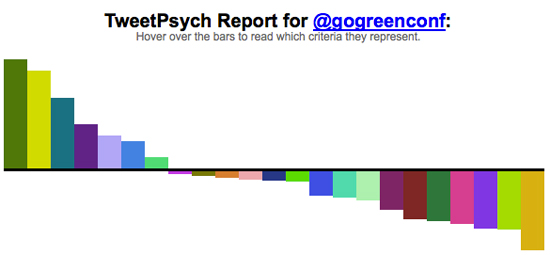

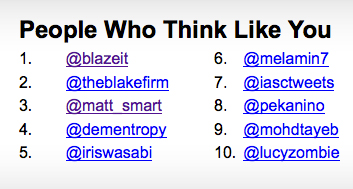

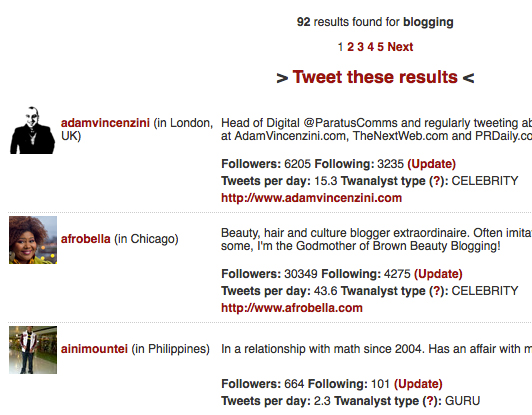
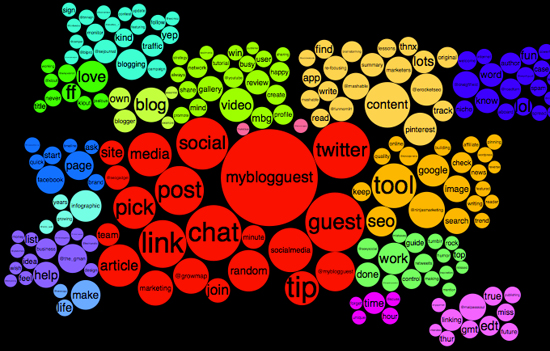
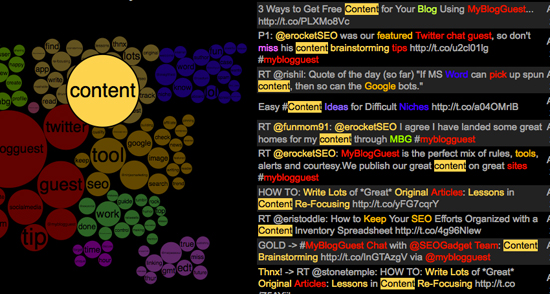



3 Responses
3 Tools to Analyze Your Tweeting Style http://t.co/HAJWonPE by @seosmarty
Those are great tools, Ann. I’m not aware about any of these, so thanks for sharing this.
I’m going to try Tweet Topic explorer and Tweet Psych, tonight.
Great post Ann!! This post seems to be so informative and interesting to me. I have never come across this tools before and Twanalyst tool. Looks very cool. I am definitely going to use this Tweet Topic explorer tool. Thanks you once again for this great post!
Comments are closed.